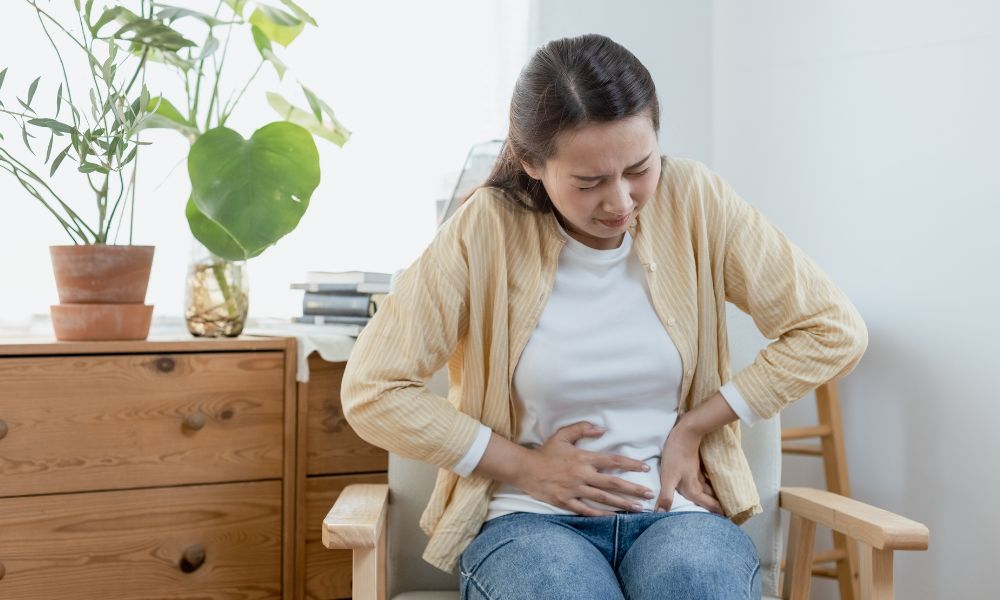It starts innocently enough—a sudden stomachache or a wave of nausea. Before you know it, you’re running for the bathroom. Sound familiar? Right now, New Jersey is seeing a surge in norovirus cases, a highly contagious virus often called the “stomach flu.” While the symptoms can be downright miserable, understanding norovirus can help you recover faster and protect your loved ones.
What is Norovirus?
Norovirus is a contagious virus that causes vomiting and diarrhea, which spreads quickly, especially in close quarters like schools, nursing homes, and workplaces. According to the CDC, norovirus is the leading cause of foodborne illness in the United States.
Nilesh Patel, DO, Chairman of Emergency Medicine for St. Joseph’s Health, notes, “Norovirus isn’t just a minor inconvenience. For some people – especially the very young, elderly, or those with weakened immune systems – it can lead to dehydration or other complications that require medical attention.”
Common Symptoms of Norovirus
The symptoms of norovirus typically appear 12 to 48 hours after exposure and may include:
- Sudden onset of nausea
- Vomiting
- Watery diarrhea
- Stomach cramping
- Low-grade fever or chills
- Muscle aches or fatigue
While unpleasant, most cases resolve on their own within 1 to 3 days. The key is staying hydrated and resting to allow your body to recover.
How Does Norovirus Spread?
Norovirus spreads easily through:
- Consuming contaminated food or water
- Touching contaminated surfaces and then your mouth
- Direct contact with an infected person
Dr. Patel adds, “Hand hygiene is crucial for prevention. Wash your hands thoroughly, especially before eating and after using the restroom. Alcohol-based hand sanitizers are less effective against norovirus, so stick to the basics – soap and water.”
Treatment for Norovirus
Unfortunately, there’s no specific antiviral medication for norovirus. Treatment focuses on managing symptoms:
- Hydration is Key: Replace lost fluids with water, oral rehydration solutions, or clear broths. Avoid sugary drinks, which can worsen diarrhea.
- Rest and Recovery: Give your body the downtime it needs to heal.
- Gentle Foods: Once you’re able to eat, stick to bland, easy-to-digest options like crackers, toast, or bananas.
When to Call the Doctor
While most norovirus cases resolve on their own, there are situations when medical care is essential. Contact your doctor if you or a loved one experiences:
- Signs of severe dehydration (dark urine, dry mouth, dizziness, or confusion)
- Inability to keep liquids down for more than a day
- Bloody stool
- Persistent symptoms lasting more than three days
Dr. Patel emphasizes, “It’s always better to err on the side of caution. If you’re unsure whether your symptoms warrant a visit, give your doctor a call.”
Preventing Norovirus
Prevention is the best medicine. Follow these steps to reduce your risk of norovirus:
- Wash Your Hands: Soap and water are your best defense.
- Disinfect Surfaces: Use bleach-based cleaners to sanitize areas touched by an infected person.
- Handle Food Safely: Wash fruits and vegetables thoroughly and cook shellfish to the proper temperature and avoid preparing food or interacting closely with others until at least two days after symptoms subside
- Stay Home When Sick: Give your body the rest it needs to heal.
Final Thoughts
Norovirus may be a common culprit behind stomach trouble but understanding its symptoms and how to manage them can make a big difference. “By practicing good hygiene and knowing when to seek medical help, you can minimize the impact of this virus on your family and community,” says Dr. Patel.
If you or a loved one suspect norovirus, don’t hesitate to reach out to St. Joseph’s Health for guidance. Together, we can navigate this stomach bug season with confidence.
Need an urgent care center? Find one here.
Need a primary care physician? Find one here.







